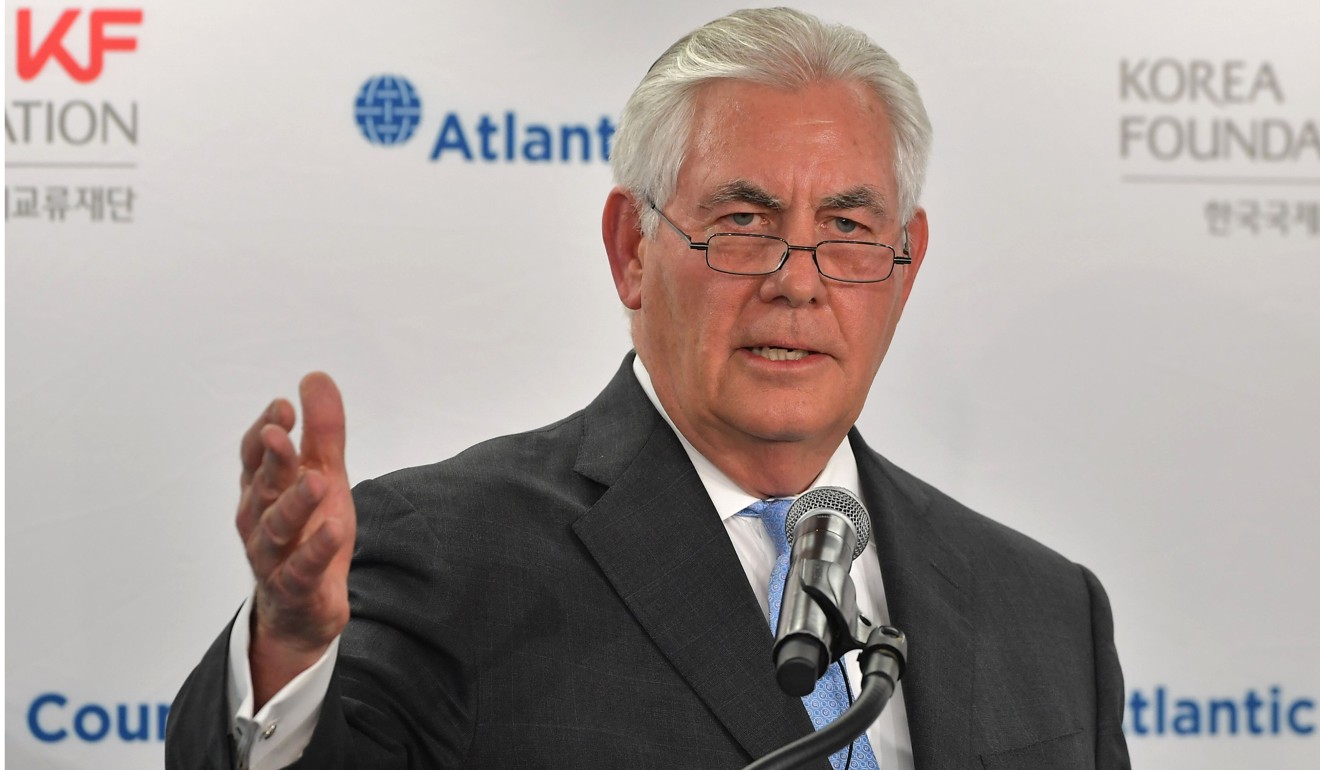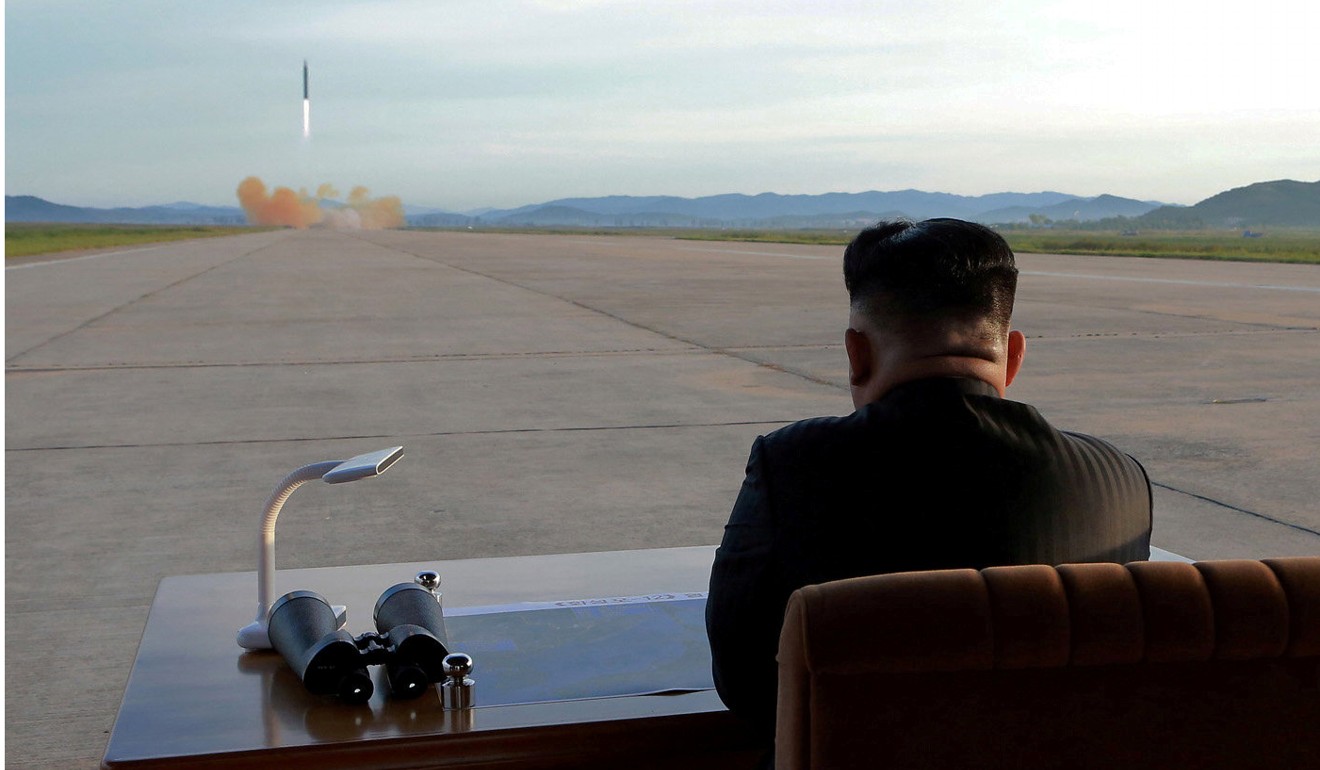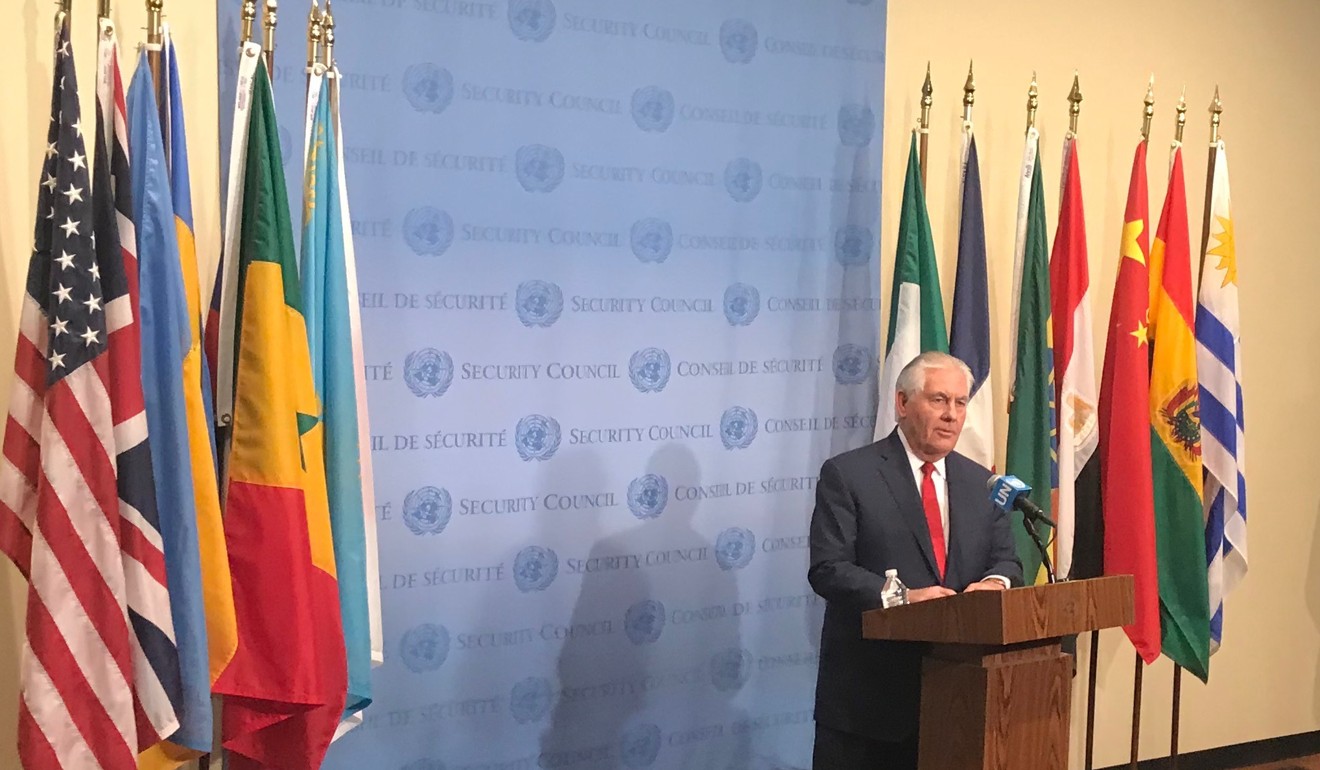
North Korea accuses US, Japan and UN of ‘hostile’ campaign against Pyongyang’s ‘defensive’ nuclear ambitions
US Secretary of State Rex Tillerson told UN Security Council that White House will not negotiate with Pyongyang until it ceases its ‘threatening behaviours’
North Korea lashed out at the US, Japan and the United Nations Security Council, blaming them for a “hostile” campaign aimed at preventing the North from pursuing a nuclear weapons programme Pyongyang sees as necessary to defend itself.
Those comments came after US Secretary of State Rex Tillerson called on China and Russia to take greater measures to halt North Korea’s nuclear weapons programme and said the US will not negotiate with North Korea until Pyongyang stops “threatening behaviours”.
Addressing a special ministerial meeting of the UN Security Council, North Korea’s UN ambassador Ja Song-nam began by touting “the incredible might of our republic that has successfully achieved the great historic cause of completing the state nuclear force cause of building rocket power through a great November event,” referring to last month’s launch of the country’s most advanced ballistic missile.

“Our possession of nuclear weapons was an individual self-defensive means of defending our sovereignty and rights of resistance and development from the US nuclear threat and if anyone is to be blamed for it, the US must be held accountable,” Ja said.
“There are several nuclear power states all over the world now, but there is no country like the US who is continuing to openly threaten and blackmail other countries with its nuclear weapons.”
The meeting at UN headquarters offered no indication that Pyongyang might be open to negotiations since declaring itself a nuclear state and amplified the differences between the US and its regional allies South Korea and Japan on one side and China and Russia on the other.
With 20 missile launches by North Korea, two of which overflew populated Japanese territory, 2017 turned into the most contentious year for relations between the US and Pyongyang since a cease fire ended military combat on the Korean Peninsula in 1953.
“I don’t think we should look to a public event like what we had at the UN Security Council for movement on this issue. Each side is articulating given positions,” Annelise Riles, a professor of Far East legal studies at Cornell Law School, said in an interview with the South China Morning Post.
“There are some elites in North Korea who realise that a de-escalation would be in the country’s interest, but it’s dangerous for them to advise the senior leadership this way amid [US President Donald] Trump’s sabre rattling.”
Riles is founder of Meridian 180, an online forum on subjects including security issues translated into Chinese, English, Korean and Japanese.
Tillerson told the Security Council meeting, held to discuss the reclusive state’s nuclear weapons programme, that “a sustained cessation of North Korea’s threatening behaviours must occur before talks can begin”.
Tillerson, who sparred with China and Russia over Washington’s approach to the issue, pushed them to escalate pressure on Pyongyang.
“We particularly call on Russia and China to increase pressure [in addition to measures set out in Security Council resolutions against North Korea],” Tillerson said. “As Chinese crude oil flows to North Korean refineries, the United States questions China’s commitment to solving an issue that has serious implications for its own citizens.”
“Continuing to allow North Korean labourers to toil in slave-like conditions inside Russia in exchange for wages used to fund nuclear weapons programmes calls into question Russia’s dedications as a partner for peace.”
As they have consistently, Tillerson’s Japanese and South Korean counterparts – Taro Kono and Cho Tae-yong, respectively – joined the US in calling for a complete and verifiable dismantling of North Korea’s nuclear weapons capability. Analysts said that result is unlikely given the importance the country’s leader Kim Jong-un has placed on the programme.

The US, therefore, faces a difficult choice, Evan Medeiros, managing director of Asia at the Eurasia Group said earlier this week.
“Either a strategic decision on the part of the [Trump] administration in which they accept a cap and freeze on the current programme and defer the denuclearisation programme” or some kind of military action, which would entail “costs across the board”.
“Obviously these caps would have to be verified in exchange for punting on the denuclearisation,” Medeiros said at an Asia Society event in New York.
Medeiros also served as special assistant to former US president Barack Obama and as senior director for Asian affairs at the White House’s National Security Council.
China and Russia hit back at Tillerson during the meeting and reiterated their call for the US to halt all military exercises in near the Korean Peninsula as part of a phased approach to North Korea’s denuclearisation, also known as “freeze-for-freeze”.
“The North Korean workers aren’t working in Russia in slave-like conditions,” Russia’s UN Ambassador Vasily Nebenzya said. “They’re working on the basis of an intergovernmental agreement with [North Korea] which guarantees their rights.”

“The current situation on the Peninsula is not caused by one party alone and it is not helpful to impose on any one party the responsibility of resolving the problem,” said China’s UN Ambassador Wu Haitao.
“China has made greater efforts and paid a higher price than anyone else [in terms of enforcing existing UN sanctions against North Korea]. It is irresponsible to doubt or challenge what China has done.”
Tillerson repeated a comment he made earlier this week that the US was open to communicating directly with the North Korean government, a remark which appeared to step back from a US demand that Pyongyang first accept that any negotiations would hinge on the country agreeing to give up its nuclear arsenal.
However, he rejected any preconditions on the part of Washington, including a freeze-for-freeze.
“Our communication channels remain open. North Korea knows they’re open,” Tillerson said.
“You heard others who have called for a freeze for freeze. We do not accept a freeze for freeze as a precondition to talks. We do not accept any relaxing of the sanctions regime as a precondition of talks. We do not accept a resumption of humanitarian assistance as a precondition of talks.”

